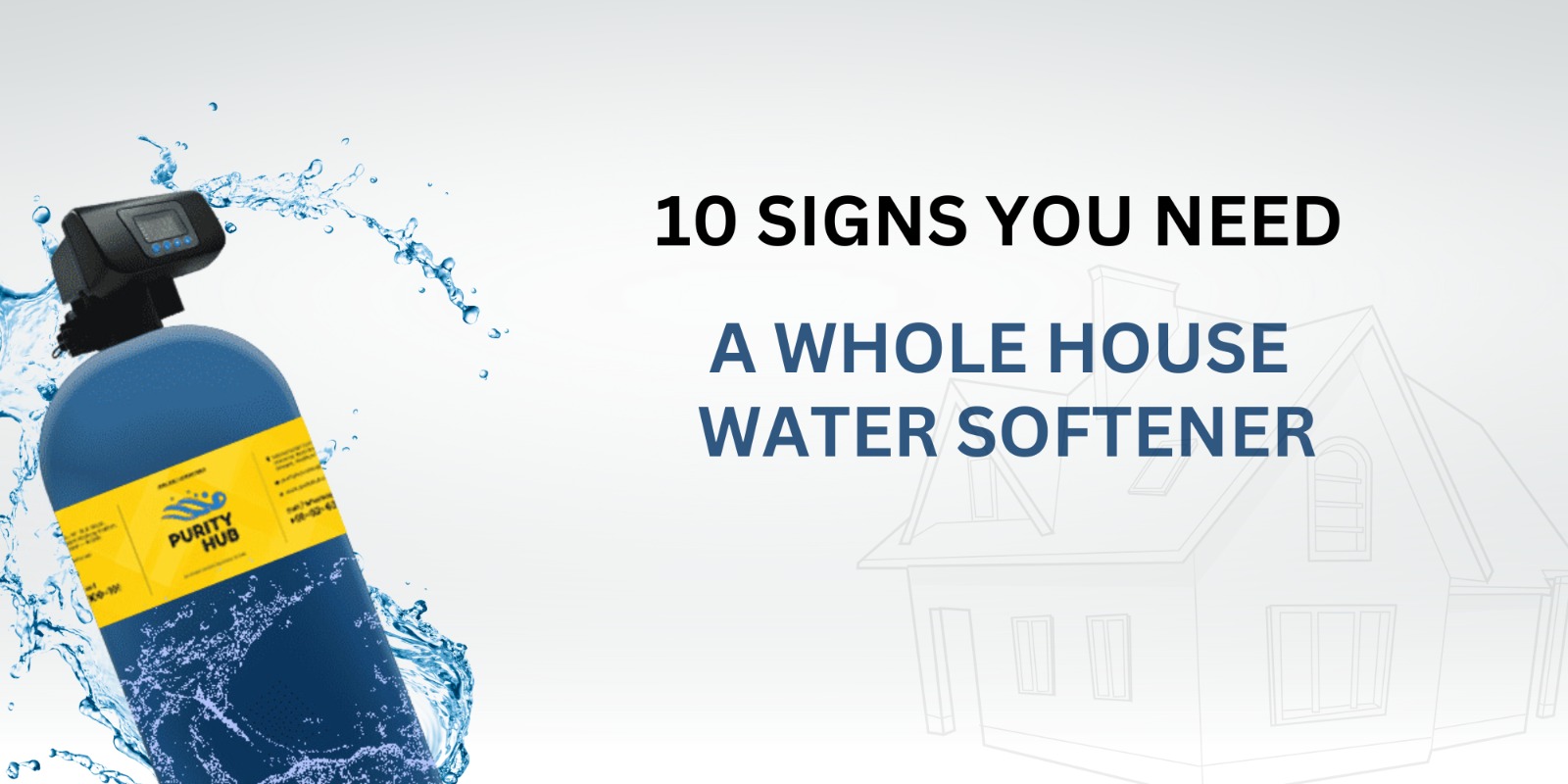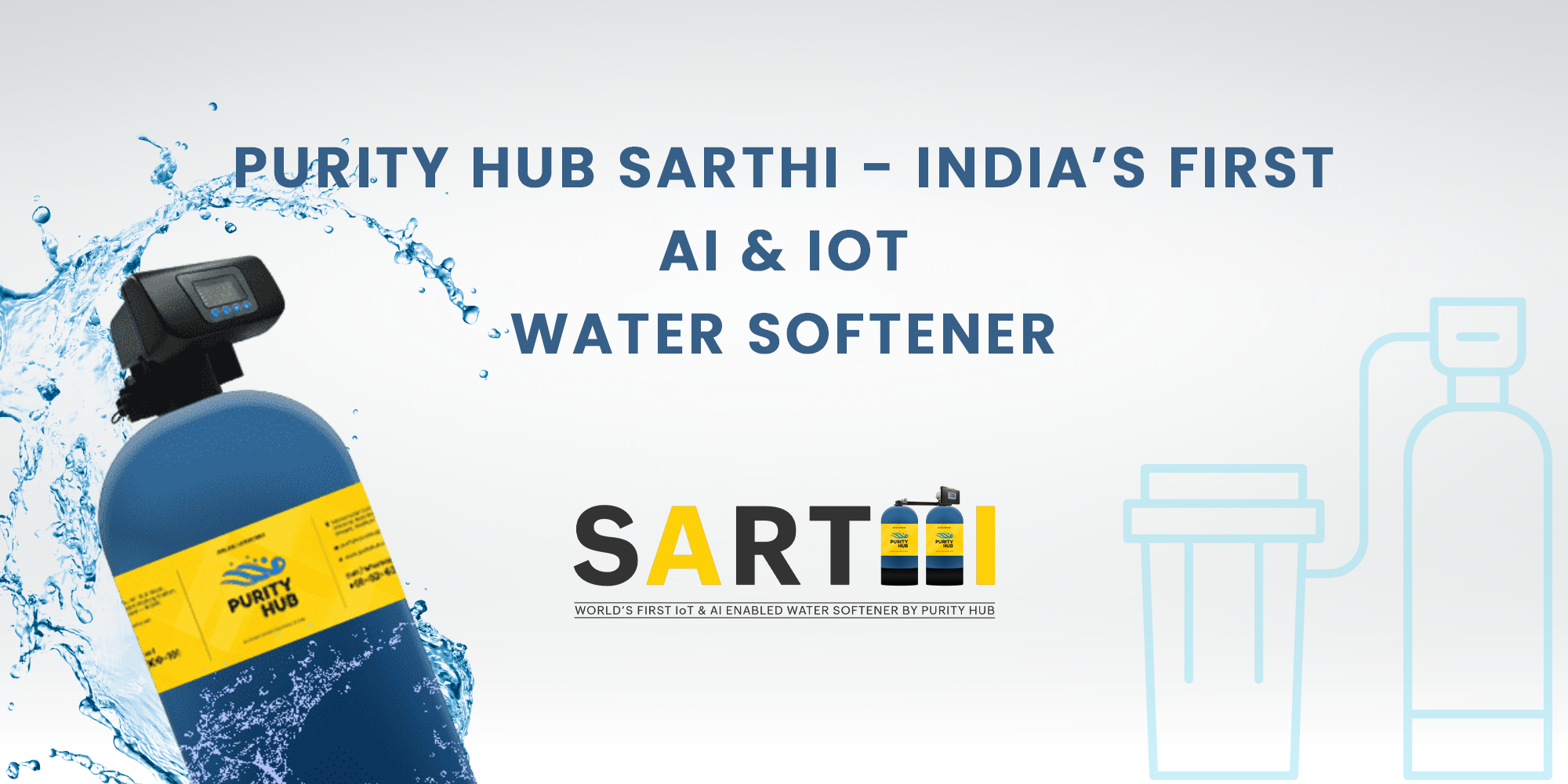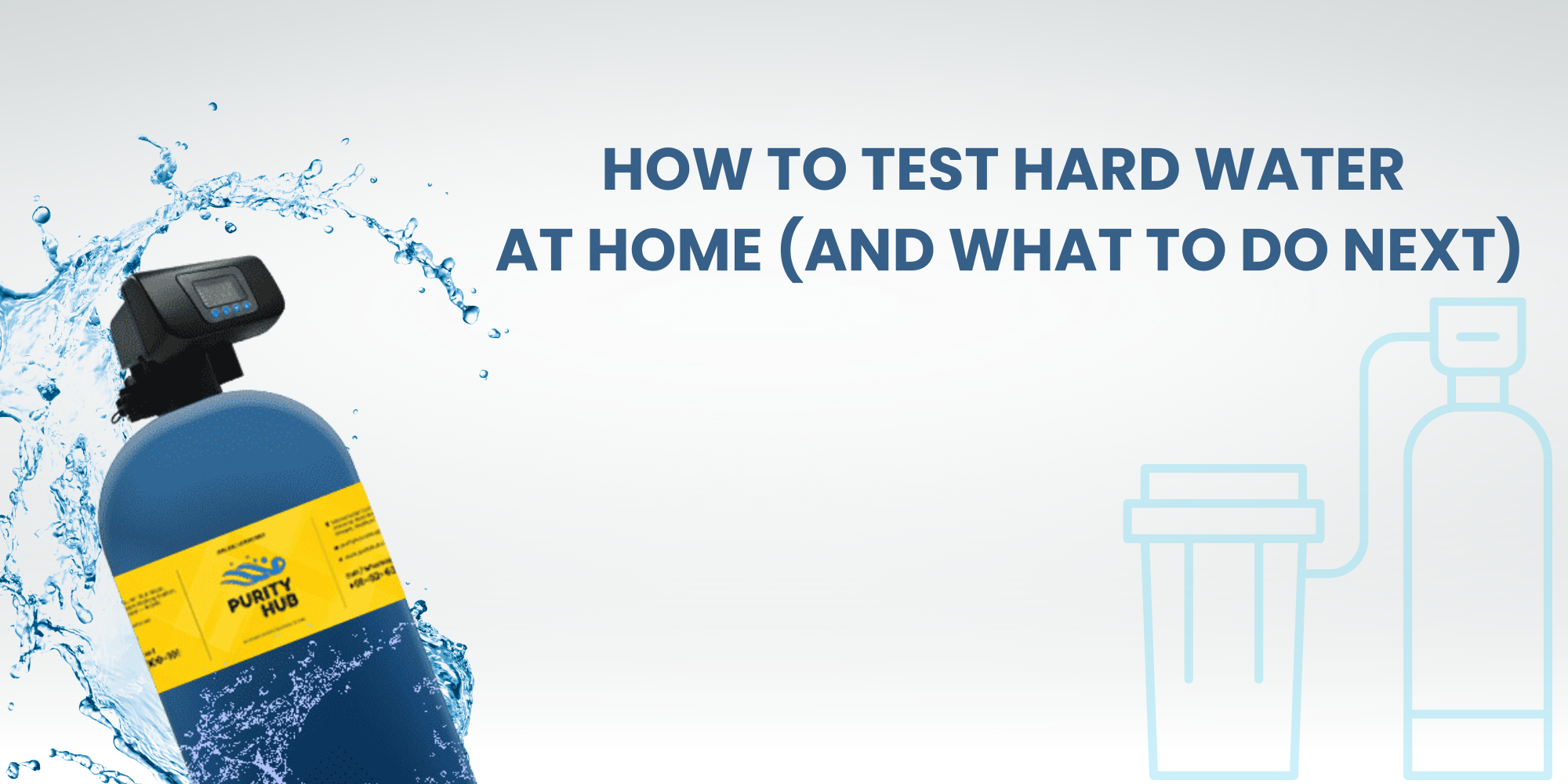
4 May, 2024
10 Signs You Need a Whole House Water Softener
Identify the symptoms of hard water problems in your home, such as scale accumulation and inefficient appliances, and install a water softener. See our guide to the top 10 indications.
Many problems with water in your home can be avoided by recognizing the indicators that your house requires a water softener. Due to its high calcium and magnesium content, hard water can cause a number of issues in your home, ranging from inefficient water-using appliances to scale accumulation in your pipes.
Ten clear indicators that it might be time to install a water softener in your home will be covered in this extensive article.
1. Scale Deposition in Fixtures and Appliances
A common indicator of hard water is scale development, which shows up as a white, chalky deposit on faucets, showerheads, and kettles, among other household fixtures. This buildup indicates that the water contains a high concentration of minerals, especially calcium and magnesium. Due to the obstruction of water flow caused by these deposits, your appliances may become considerably less functional and efficient, using more energy to accomplish the same tasks.
As a result, this lessens the aesthetic appeal of your fixtures and increases energy usage, which raises utility costs and may cause the appliances involved to wear out sooner.
Seeking advice from licensed water softener contractors can be a great option if you're having these problems. To help minimize the consequences of hard water, they can offer a professional examination and solution that will keep your fixtures and appliances in optimal condition.
2. Soap Scum and Lathering Difficulties
Daily hygiene procedures can be seriously hampered by hard water in a home, especially when it comes to lathering soap. This problem results from hard water's high mineral content, namely calcium and magnesium, which react negatively with soap. Rather than producing the rich, cleaning foam that one might anticipate, this interaction produces soap scum, a sticky, difficult-to-rinse material. This unwanted residue leaves behind an ugly film that is difficult to wipe and clings to a variety of bathroom surfaces, such as bathtubs, shower walls, and sinks.
The ramifications of this occurrence are numerous, requiring you to use more soap and shampoo in order to achieve the appropriate degree of cleanliness. The ongoing struggle with soap scum results in the following inconveniences and requires more time and effort to clean:
1. A decline in cleaning product efficacy
2. A rise in the price of sanitary goods
3. Time-consuming and laborious cleaning procedures
4. A decline in the longevity and beauty of bathroom fittings
If you see any of these symptoms, you should think about hiring water softener installers or other professionals to install the softeners.
3. Stiff and Dull Laundry
Hard water laundry frequently has a coarser texture and is less colorful than ordinary laundry, which is a stark contrast to the soft, brilliant results that are anticipated from a regular wash. Hard water minerals, such as calcium and magnesium, seep into fabric fibers, reducing color vibrancy and giving textiles a rough texture. This shortens the clothes' useable life and has an immediate impact on their comfort and appearance. It also speeds up their disintegration.
Your home may require a water-softening solution if you see these symptoms in your laundry. The following are some effects of hard water on laundry:
1. Diminished hues and dimmer whites
2. The appearance of rough, scratchy fabrics
3. Increased deterioration that reduces the longevity of clothing
4. The need for additional detergent to attain a clean appearance, which drives up expenses
In order to maintain the integrity and aesthetics of your laundry, it may be time to think about adding a water softening system to your home's supply if any of these symptoms seem all too familiar.
4. Rising Water Heating Expenses
Hard water severely reduces the performance of water heaters, mostly because mineral deposits create an insulating sediment layer at the bottom of the tank. Because of the sedimentation, more energy must be used to reach the appropriate water temperature, which raises utility costs and puts unnecessary strain on the heater—possibly reducing its operational life. The hardening effects of water could be the cause of a substantial rise in heating expenses without a commensurate increase in water usage, which is a compelling argument in favor of installing a water-softening system.
The effects of hard water on water heating consist of:
1. insulating sediment layers form, decreasing effectiveness
2. increased energy use, which results in greater costs
3. Potential harm and shortened life of water heaters
4. greater upkeep and the possibility of premature replacements
A sudden and inexplicable increase in water heating costs frequently indicates that a water softener installation from a qualified professional is required to lessen these impacts and get efficiency back.
5. Regular Plumbing Maintenance
Because hard water has a high mineral content, deposits in pipes can cause serious plumbing problems. This accumulation limits the flow of water, increases the possibility of obstructions and corrosion in the pipes, and creates the conditions for costly, continuous plumbing maintenance. Frequent experiences with these kinds of plumbing problems may indicate the harmful effects of hard water, highlighting the importance of a water softening system in preventing these enduring problems.
Hard water in plumbing can cause a number of issues, including:
1. Reduced water pressure as a result of mineral accumulation
2. An increased frequency of leaks and obstructions in pipes
3. Damage and deterioration to plumbing fixtures
4. Rising maintenance and repair expenses
If your home's plumbing system is experiencing persistent problems, it may be time to consider hiring a professional water softener installer to shield it from the damaging effects of hard water.
6. Issues With Skin And Hair
Due to the high mineral concentration of hard water, natural oils in skin and hair can be stripped out, leading to dermatological problems. The result of this desiccation might be dry, itchy skin and dull, lifeless hair. The harsh effects of hard water can make problems like eczema worse for people with sensitive skin. Members of the family exhibiting such symptoms may need to install a water softening system in order to mitigate the negative effects of hard water.
The following are some of the ways that hard water affects skin and hair:
1. Natural moisture levels being depleted, resulting in dryness and discomfort
2. Hair that feels brittle and is dull
3. Exacerbation of skin disorders such as dermatitis
4. Using more skincare and haircare products to combat dryness
If members of the household are experiencing these problems frequently, it may be evident that the quality of your water is affecting people's health, which is a compelling argument for installing a new water softener.
7. Shorter Appliance Lifespan
Hard water has a major negative impact on home appliances, especially those that are in regular touch with water like coffee makers, dishwashers, and washing machines. Hard water's high mineral content causes scale to build up inside these appliances, which immediately reduces their operational efficiency and hastens the internal component deterioration process. Many unsettling symptoms may arise from this cycle of inefficiency and high upkeep, including:
Regular malfunctions: There is a discernible rise in malfunctions and operational problems.
Decreased Efficiency: This results in longer cycle times and worse performance.
Increased Energy Usage: This refers to higher electricity usage when appliances become more difficult to operate due to scale-induced strain.
Early Replacement: This refers to the necessity of replacing equipment earlier than planned, which will be very expensive and inconvenient.
Installing a water softener provides a tactical solution to these issues by reducing the negative effects of hard water by eliminating or changing the troublesome minerals before they have a chance to build up. By doing this, it prolongs the lifespan of appliances, improves their efficiency and dependability, and lowers the energy and maintenance costs for households with water-using equipment.
8. Distasteful Taste Or Smell in Water
Hard water can occasionally taint the quality of your water supply with an unpleasant taste or smell, which reduces the usefulness and enjoyment of tap water for cooking and drinking. This is a direct result of the high mineral concentration and can appear as a sulfurous odor or a metallic tang.
Among the warning signs are:
Taste of metal: Water tastes acidic or metallic.
Sulfur scent: Your water has a smell like rotten eggs.
Professional assistance in installing the best water softener can help to resolve these problems and bring back the flavor and freshness of the water supply in your house.
9. Foggy Dishes and Glassware
The high mineral concentration of hard water is well known for leaving a filmy residue on dishes and glassware even after washing. This hazy look reduces the visual appeal and cleanliness of your tableware and frequently calls for extra hand washing or polishing. Among the problems are:
Glassware that has a persistent coating on it keeps it even after washing.
Spots on silverware: Water marks appear on utensils.
Extra cleaning work: The home objects require more hand drying or rinsing.
Distaste for appearance: Cloudiness detracts from the way food is presented.
Your dishes will be spotless thanks to the removal of these deposits by the best water softener.
10. Environmental Factors
A water softener helps to promote eco-friendly living while addressing the issue of hard water. It uses less energy and less abrasive cleaning solutions by preventing scale buildup and improving appliance efficiency. Among the advantages for the environment are:
Lower energy consumption: Energy is conserved by appliances running more smoothly.
Reduced chemical runoff: Cleaning products containing a lot of chemicals are not as necessary.
Extended appliance life: Less money is spent on replacements.
Water conservation: Water usage is reduced by water-efficient plumbing and appliances.
A proactive measure to reduce your home's environmental impact and encourage sustainability in day-to-day living is installing a water softener.
Concluding
Knowing when your property needs a water softener installed is crucial to preserving the longevity and effectiveness of your equipment as well as the comfort and health of your family. It could be time to have water softeners if you're having any of the problems listed above. This not only shields your house from the damaging effects of hard water, but it also increases the sustainability and economy of your household.



